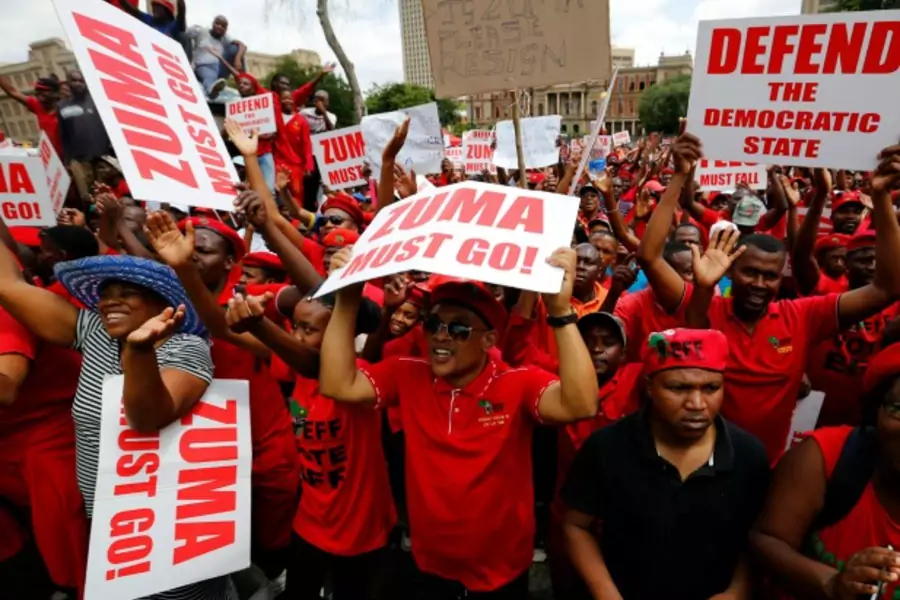This Week in Markets and Democracy: Zuma’s Corruption Woes, DRC Sanctions, Afrobarometer Report

More on:
Report May Bring Down South Africa’s President
New allegations may finally bring down teflon president Jacob Zuma. Despite his earlier legal protests, South Africa’s public protector’s office released a report suggesting that a wealthy family close to the president influenced government hires and used their ties to promote their private interests. It recommends opening a criminal investigation, a prelude to impeachment proceedings. While the African National Congress (ANC) party backed Zuma during a previous impeachment vote over the use of $16 million in state funds to renovate his private home, these new allegations are hurting him within his party. Already Zuma faces a no-confidence vote in parliament next week, and some ANC members are joining religious leaders, thousands of protestors, and forty South African CEOs in calling for his resignation.
Going After Kleptocrats to Protect DRC’s Democracy
As Democratic Republic of Congo (DRC) President Joseph Kabila clings to power, delaying elections even though his second and last term expires next month, the United States is pushing back. The Treasury Department already imposed financial sanctions on two top security officers who helped lead a violent crackdown against antigovernment protestors, opposition supporters, and the media. Now members of Congress want the White House to go after assets and ill-gotten gains of Kabila cronies. They hope President Obama will take actions similar to those against senior Venezuelan officials last year, imposing targeted economic sanctions on those who committed human rights abuses, undermined democracy, or were involved in public corruption.
Africans Like China’s Growing Presence
Africans across thirty-six nations view China’s involvement and investment—and the explosion in trade from $10 billion in 2000 to nearly $300 billion in 2015—in their countries favorably. A new Afrobarometer survey finds 63 percent rate Chinese economic and political influence as “somewhat” or “very” positive. China’s state-driven economic model now ranks second only to the United States as the preferred means for development. This suggests Africans focus more on the infrastructure, business, and cheap goods Chinese investment brings, and less on democracy and human rights concerns.
More on:
 Online Store
Online Store